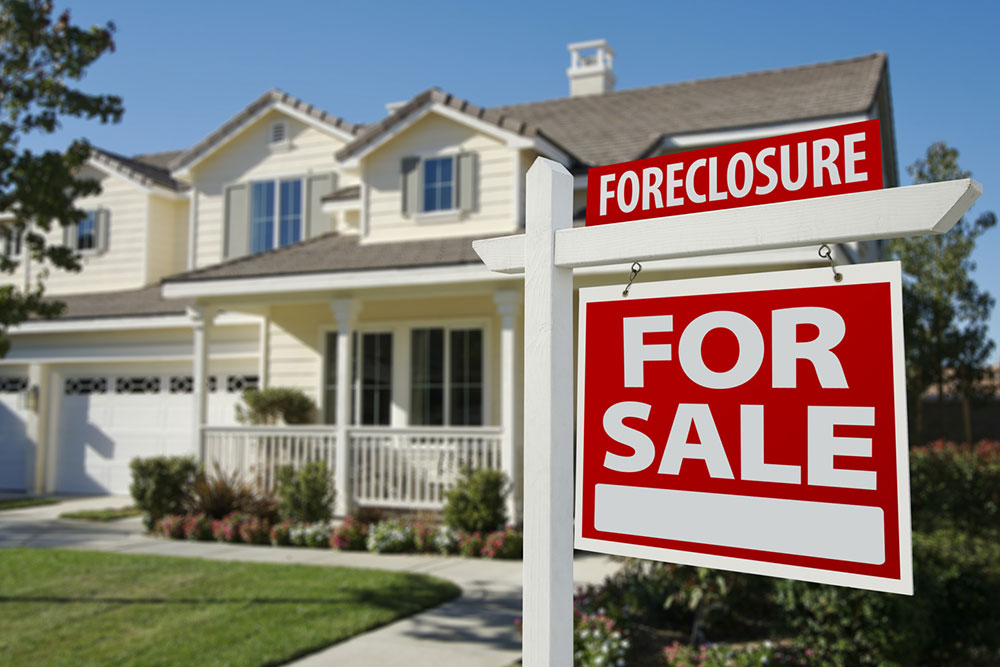Bank-owned Homes – Benefits and Tips for Buyers
The ever-increasing prices of properties have become a cause for concern, with many worried that they may not be able to afford homes any time soon. This is where bank-owned or foreclosed properties can help. These properties tend to be sold at a much lower price than other properties. But before one starts looking for bank-owned homes, it is important to understand what they are to see if they are worth considering.

Home foreclosure process
When a homeowner fails to repay the loan they took to buy a home, the bank (or the lending institution) can seize that property from them. This is done so that the bank can sell the property to recover the loan amount that the homeowner still owes the bank. This process of seizing the home is called foreclosure. It does not immediately begin after the homeowner stops making mortgage payments. Before declaring a property as foreclosed and completely seizing and selling it, the bank sends a notice to the homeowner regarding the missed payments. If the homeowner fails to make payments even during the notice period, the bank acquires the home. At that point, the property becomes a bank-owned home. Then, the bank begins the process of selling the home to make up for its losses.
Benefits of buying foreclosed homes
While buyers may be tempted to go for brand-new homes, buying bank-owned homes can be beneficial in many ways.
Lower price
The biggest benefit of buying a bank-owned home is that it is much more affordable than other homes. There are two main reasons for the low price.
- First, the bank (or the lender) does not intend to make any profits from selling a foreclosed home. It only needs to recover the loss incurred when the previous homeowner missed their loan repayment. The bank may also need to recover the outstanding property taxes and other real-estate expenses incurred while the home was being foreclosed and listed for sale. But even after considering these costs, the home’s price is likely lower than that of brand-new homes.
- Second, most foreclosed homes are not in great condition. They usually need a lot of repairs, and the bank or lending institution will not make these repairs. So, the bank will sell the home as is and list it at a lower price to attract buyers.
Good investment opportunity
Another major benefit of buying cheap bank-owned homes for sale is that it can be a great investment opportunity. As the home can be bought at an incredibly low price, one would not be spending as much as the market price of the home . Even after adding the cost of the repairs, one would be able to make a profit on the property. Once all the repairs are done, one can sell these foreclosed homes at a significantly higher price that aligns with the current real estate market trends. This can help one get a great return on their investment.
Better bargaining power
An important thing to note about bank-owned homes is that the bank is not interested in owning the property. This is because property ownership comes with certain costs, such as taxes and insurance. So, the bank wishes to sell foreclosed properties as soon as possible. Because of this, when buying bank-owned foreclosed homes, one has better bargaining power. One can negotiate the price and try to convince the bank to reduce the price further.
Tips for buying foreclosed homes
Be patient
Foreclosed and bank-owned homes are not as easy to find as other properties. One may need to spend a lot of time looking for listings of bank-owned or foreclosed homes. Also, the auctions for buying bank-owned homes can be very competitive. So, one may need to place several bids before finally getting the home. Also, not all foreclosed homes will necessarily fit all requirements. That’s why the search may take a little longer. One can consider hiring a professional real estate agent who can look for suitable bank-owned properties.
Get a mortgage pre-approval
If one plans to buy a bank-owned property with a loan, getting a loan or a mortgage pre-approval is important. Getting pre-approved indicates to the institution selling the property that the buyer is actually capable of purchasing the property. So, it increases the chances of closing the deal on the home.
Consider all costs
After finding a bank-owned home that one is interested in purchasing, one should calculate the total cost of owning the property. This also means checking the home and calculating the cost of repairs and replacements. One must also inquire about the prices of other regular properties in the area to determine if the investment will offer good returns.
Seeking the assistance of a real estate professional can help one find bank-owned homes for sale nearby and avoid mistakes in the purchase and negotiation process.